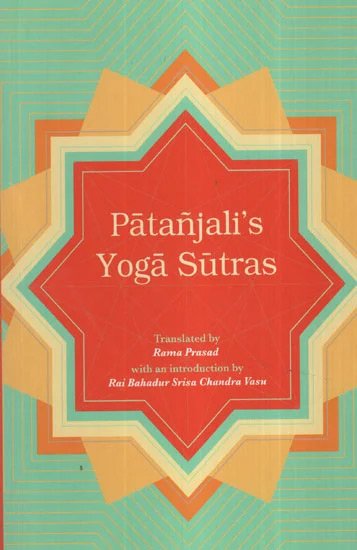Yoga-sutras (with Vyasa and Vachaspati Mishra)
by Rama Prasada | 1924 | 154,800 words | ISBN-10: 9381406863 | ISBN-13: 9789381406861
The Yoga-Sutra 4.18, English translation with Commentaries. The Yoga Sutras are an ancient collection of Sanskrit texts dating from 500 BCE dealing with Yoga and Meditation in four books. It deals with topics such as Samadhi (meditative absorption), Sadhana (Yoga practice), Vibhuti (powers or Siddhis), Kaivaly (isolation) and Moksha (liberation).
Sūtra 4.18
Sanskrit text, Unicode transliteration and English translation of Sūtra 4.18:
सदा ज्ञाताश् चित्तवृत्तयस् तत्प्रभोः पुरुषस्यापरिणामित्वात् ॥ ४.१८ ॥
sadā jñātāś cittavṛttayas tatprabhoḥ puruṣasyāpariṇāmitvāt || 4.18 ||
sadā—always, jñātāḥ—are known. citta-vṛttayaḥ—the modifications of the mind. tat-prabhoḥ—to its lord. puruṣasya—the Puruṣa. apariṇāmāt—on account of the unchangeability.
18. To its lord, the Puruṣa, the modifications of the mind are always known on-account-of-unchange-ability.—178.
The Sankhya-pravachana commentary of Vyasa
[English translation of the 7th century commentary by Vyāsa called the Sāṅkhya-pravacana, Vyāsabhāṣya or Yogabhāṣya]
[Sanskrit text for commentary available]
To its lord, the Puruṣa, whose sphere of functioning the mind itself is, mental modifications are ever known, because he is unchangeable. If the lord, Puruṣa, too changes like the mind, the mental modifications too in which it functions would be both known and unknown, like the objects of sound, &c. The mind however is always known to its lord the Puruṣa. By this is inferred its unchangeability.—178.
The Gloss of Vachaspati Mishra
[English translation of the 9th century Tattvavaiśāradī by Vācaspatimiśra]
Having thus established the mind and the object to be separate from each other, the author now reads the aphorism, filling up the omissions, with the object of showing that the self is different from those changeful objects and that the characteristic of the Puruṣa is unchangeability, which is the opposite of the characteristic of the objects and the mind. ‘To the lord, Puruṣa, whose sphere of functioning the mind itself is, &c.’ The modifications of the mind arc always known to the Puruṣa, because he is unchangeable. The mind with its modifications is always followed by the Puruṣa in all its modifications of the wandering, the distracted, the one-pointed, up to the state of inhibition. By what reason then is the Puruṣa, unchangeable? ‘If the Puruṣa were unchangeable, it would both be known and unknown like the mind (citta). It is however always known. It is therefore unchangeable and for this reason differs from other changeable objects. Says thi:—‘If the lord Puruṣa changed, &c.’ The lord who is the enjoyer of the mind knows it constantly along with its modifications. This fact establishes by inference the unchangcability of the Puruṣa. Thus the meaning is that this unchangeable Puruṣa is different from the changing mind.—18.
